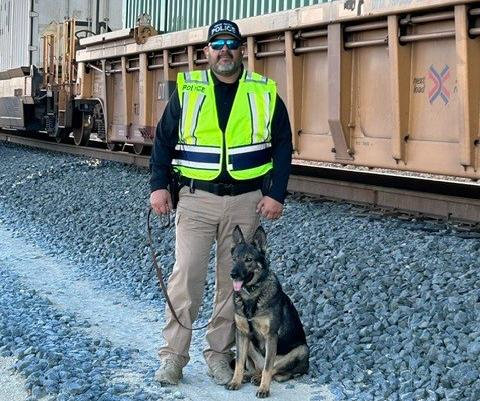Union Pacific’s Security Efforts Include:
- 1

Protecting People, Cargo and Assets
Union Pacific's Police Department (UPPD) Special Agents play a vital role in protecting people, cargo and rail assets across its 23-state network. Special Agents are certified state law enforcement officers with investigative and arrest powers both on and off railroad property in most states. They have primary jurisdiction over crimes committed against the railroad as well as interstate law enforcement authority pursuant to federal law.
UPPD utilizes a combination of patrol operations, surveillance technology, and joint task force efforts to secure railroad operations. UPPD also work closely with third-party security providers and local communities to enhance safety across the network.
Report Rail-Related Emergencies
In an emergency - stalled vehicle on tracks, hazardous materials, criminal activity, or fire - call our emergency helpline immediately.
For non-emergency matters, contact us online.
- Featured Links card
Dial 888-877-7267
Dial 00-1-881-877-726
Dial 7-1-1 for Telecommunications Relay Services
Contact Us Online

Nationally Recognized Real-Time Response
UPPD dispatchers operate out of its 24/7 Response Management Communications Center (RMCC) in Omaha, Nebraska. As the railroad’s 911 operators, they activate special agents, train dispatchers, track inspectors and local first responders to deliver real-time support.
UPPD and RMCC are CALEA-accredited – an honor held by only a small percentage of U.S. law enforcement and emergency communications agencies. We have maintained this gold standard through annual reviews since earning accreditation in 2014 and 2013, respectively.
